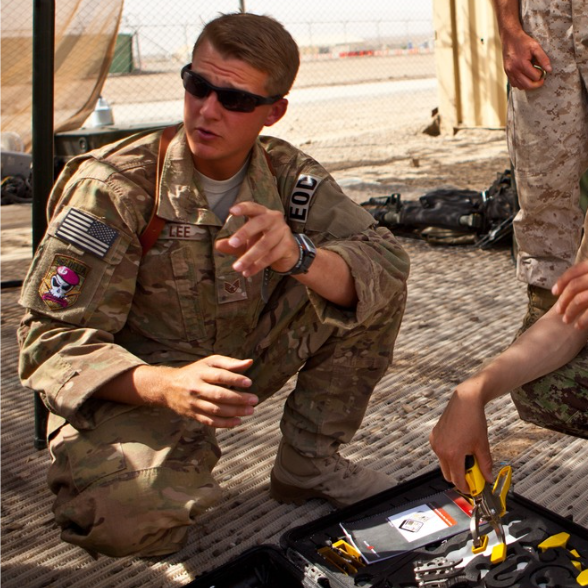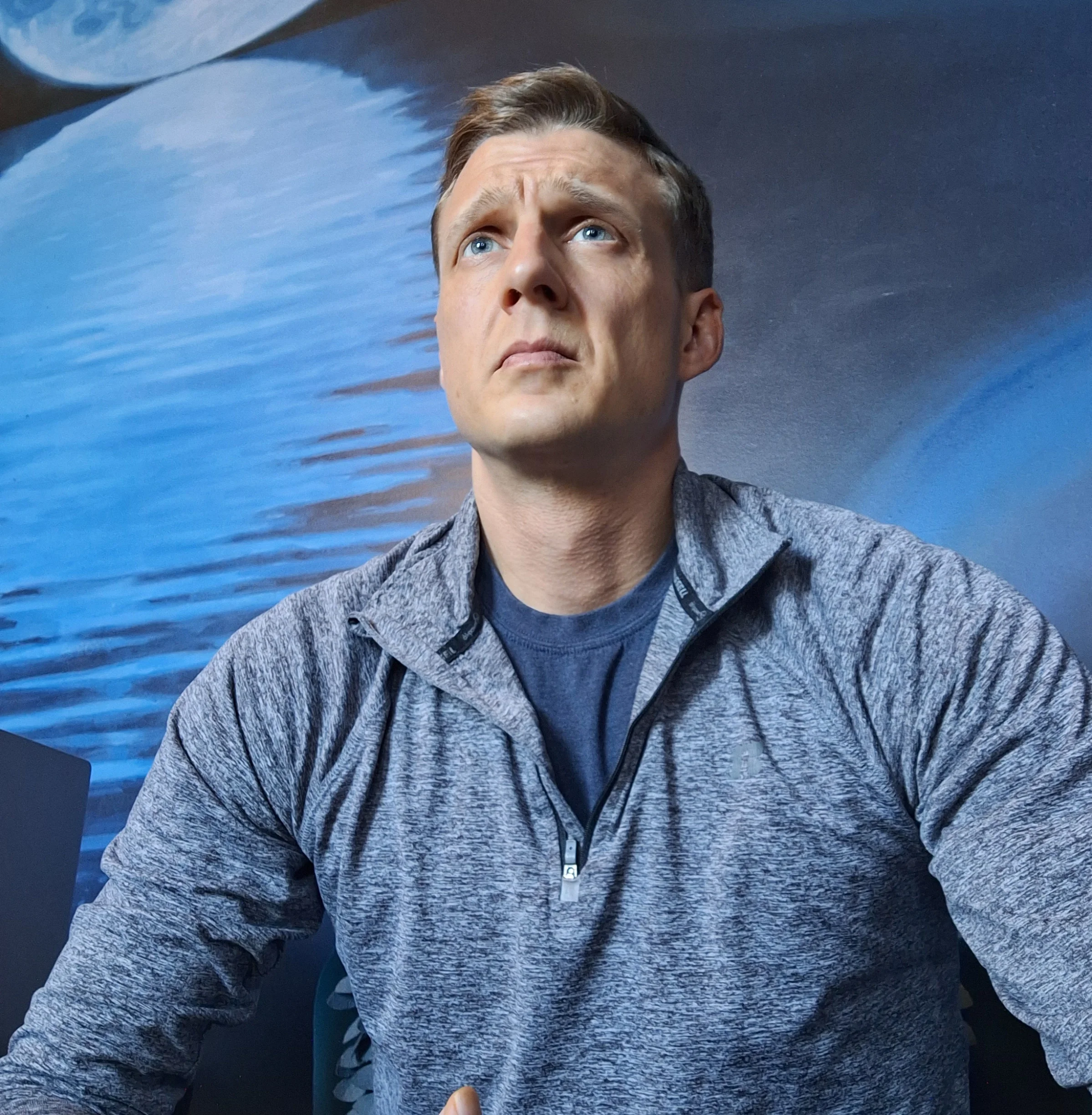Who am I?
I grew up in the small town of Andover, Connecticut, a quiet place where you learn to find meaning in small moments and to listen more than you speak. In August of 2006, I enlisted in the United States Air Force and trained to become an Explosive Ordnance Disposal (EOD) technician. My job was to make sense of chaos and to walk toward danger when others were running from it.
Those years changed me in ways I still carry today. The work demanded calm under pressure, but it also taught me about fear, trust, and what it truly means to protect others. I saw the best and worst of humanity in the same breath. I learned how fragile life can be, and how strong people become when they have no choice but to be.
Over the course of my career, I served three combat tours in Iraq and Afghanistan and traveled throughout Europe working with the Secret Service to clear airfields ahead of Air Force One in support of two U.S. presidents. Those experiences taught me what it means to lead both on and off the battlefield. They showed me that leadership is not about authority, but about responsibility, humility, and the willingness to stand beside others in moments of uncertainty.
The wounds of war
After my third combat tour, I was medically retired from the military. For the first time in years, the mission was over, and I no longer knew what to do with the silence that followed. The structure and purpose that had defined my life were gone, and in their place came isolation, addiction, and a darkness I did not yet know how to escape. I tried to fill the emptiness with anything that might quiet my mind, but nothing did. What I eventually learned is that survival and healing are not the same thing.
The road back was long and humbling. It began with honest self-reflection and the slow work of rebuilding a life from the ground up. I found purpose again through the trades. First as a carpenter, and then as an electrician’s apprentice, I rediscovered the satisfaction of creating something real with my hands. Each project became a small act of healing. Every board cut, every wire run, and every circuit completed was a reminder that I could still build something steady and meaningful.
As I settled into this new chapter, I began to notice a shortfall in our country’s renewable energy strategy. It often left communities behind and failed to create long-term local benefit. I decided to design my own model for a self-sustaining nonprofit focused on publicly owned solar development. The idea centered around a 50/50 energy generation share structure, where half of the power produced would return directly to the community. It was a vision built on the belief that renewable energy could do more than protect the planet—it could also empower people.
Current life
In time, the nonprofit model I had designed began to struggle. With changes in political leadership came the loss of key renewable energy subsidies, and the structure that once held so much promise was no longer achievable. It was painful to watch something I believed in so deeply become unviable, but that experience reminded me that even the best intentions can be humbled by circumstance. Once again, I found myself at a crossroads, unsure of where to turn next.
Rather than stay still, I decided to begin again. I moved to Charleston, South Carolina, and enrolled at the College of Charleston, where I am majoring in Psychology. The study of the mind and human behavior has allowed me to understand the patterns of resilience and recovery that I once lived through myself. It has also given me the opportunity to serve others directly, mentoring students and guiding them as a life coach. Helping the next generation navigate their challenges has become one of the most meaningful parts of my life.
These days, I try to live by a simple philosophy rooted in gratitude, empathy, and service. Gratitude reminds me to see beauty in every season, even the difficult ones. Empathy allows me to connect with people in their most vulnerable moments and remind them that they are not alone. And service continues to be the thread that ties everything together, giving each new chapter of my life a sense of purpose. This is where my time and energy are devoted now, as I continue to prepare for whatever the next chapter may bring.
Why I wrote Sincerely, America
The idea for Sincerely, America was born out of one of the most difficult moments of my life. When I watched the rushed withdrawal from Afghanistan, it felt like the ground gave way beneath me. I had spent years believing in the mission, in the ideals I swore to defend, and in the promise that our sacrifices meant something. For the first time, I began to doubt my service and the values I thought were unshakable. The images and stories coming out of that moment reopened wounds that I thought had already healed.
In an effort to process what I was feeling, I wrote a letter to myself. It was written through the voice of America, as if the nation itself was speaking to me, apologizing for what had happened. That letter became a form of therapy. When I finished writing it, I felt a weight lift from my chest that I had carried for years. It reminded me of the power that words can have when they speak to pain with honesty and compassion. I knew then that there were countless others who had been hurt or disillusioned by this country and who deserved to feel that same sense of validation and release. That realization became the seed for this book.
The second reason I wrote Sincerely, America reaches further into the future. My greatest hope is to help this nation heal the wounds of its past and to unite the American people under a banner of shared vision and accountability. I believe that true leadership requires empathy, humility, and the willingness to hold the pain of others as if it were your own. My dream is to one day serve this country as a non-party affiliated president, one who leads from the center of compassion rather than division. Writing this book was the first step in preparing for that role. It has taught me what it means to listen, to take responsibility, and to love this country enough to help it become something better than it has ever been before.



